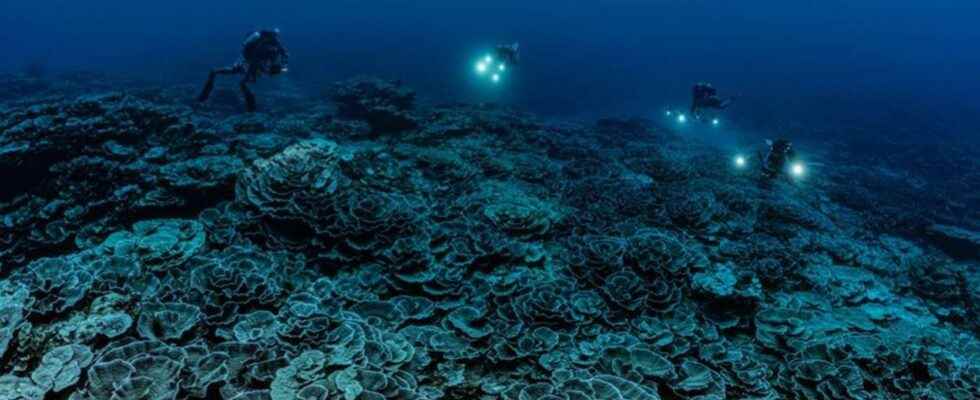A coral reef resembling a giant rose garden has been discovered in Tahiti. Its location and state of health intrigue researchers and offer new perspectives for coral conservation.
You will also be interested
[EN VIDÉO] Great Barrier Reef: Underwater life thrives despite global warming Despite the lockdown, the Schmidt Institute for the Ocean continued to conduct exploration expeditions to Australia’s Great Barrier Reef. Scientists have made a string of discoveries, with species never seen before, including 10 new species of fish, sea snails or sponges, as well as the deepest living corals ever seen in eastern Australian waters.
The ecosystems of deep ocean floor are still largely unknown because it is difficult to access them. However, researchers have just shown that ecosystems close to the surface have hitherto gone unnoticed. One coral reef was thus discovered in November 2021 off Tahiti during a scientific dive.
He extends over three kilometers and has a maximum height of about 70 meters. This reef is mostly composed of thespecies Porites rus between 35 and 45 meters deep while another species, Pachyseris speciosa, appears from 50 meters depth and is the dominant species in some areas of the reef.
An unusual depth and a preserved reef
The corals that make up this large reef also have a particular shape, which makes it look like a giant rose garden according to scientists. However, it is two other aspects of this reef that particularly arouse the curiosity of researchers. The first is that these corals are located in the twilight zone of the ocean in which the light from Sun penetrates little, which makes their presence surprising due to their symbiosis with photosynthetic microalgae.
These corals are located in the twilight zone of the ocean in which sunlight penetrates little
This discovery opens the prospect of new deeper explorations to find such coral reefs. The second aspect is that the reef seems to be in very good health and not to have been a victim ofbleaching episode of 2019 in the area, probably thanks to its unusual depth. This observation could inspire future conservation measures.
Interested in what you just read?
